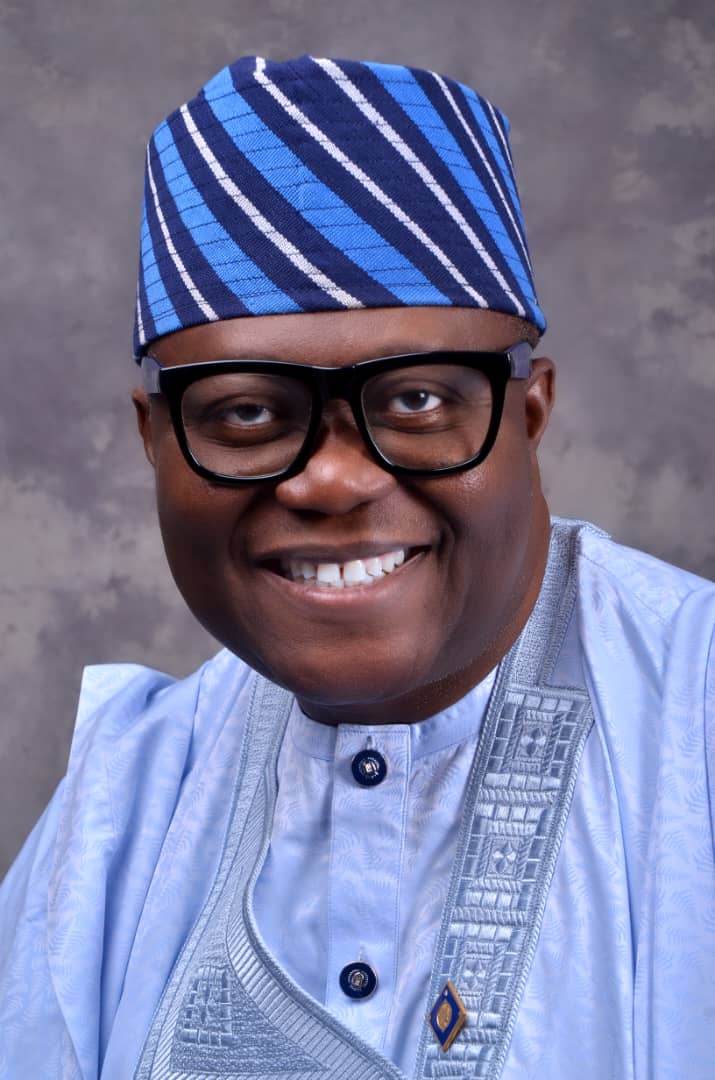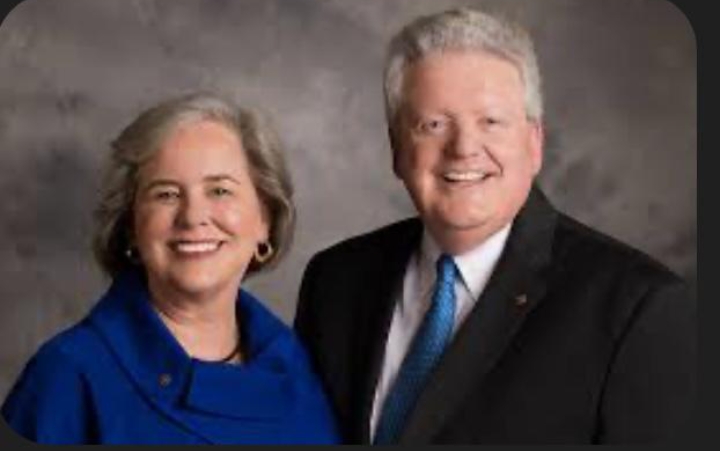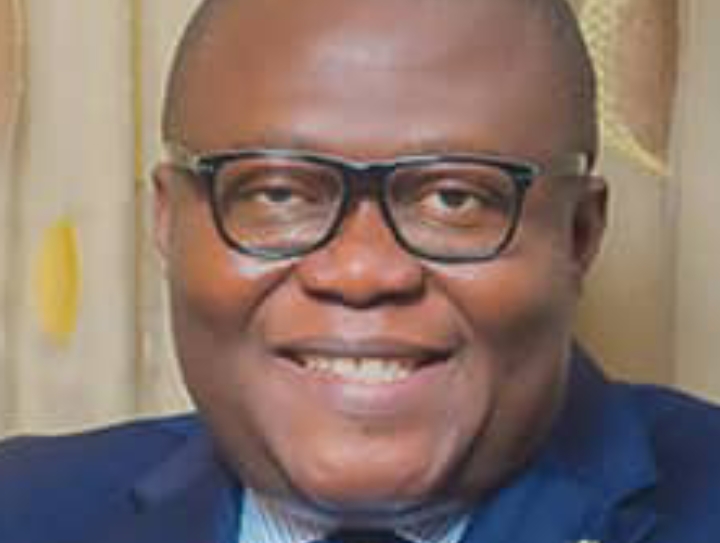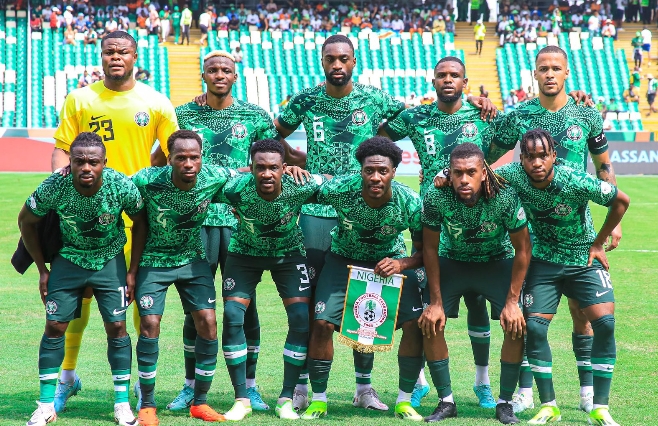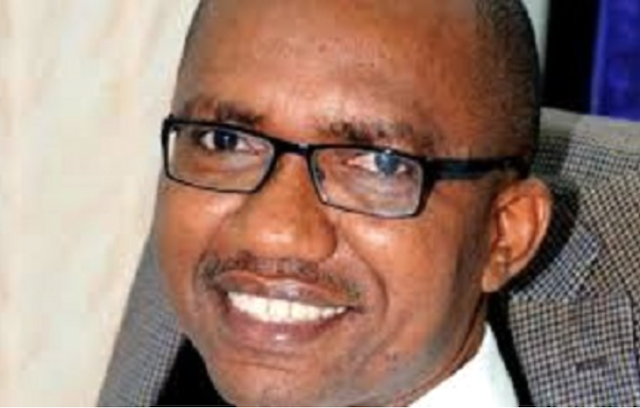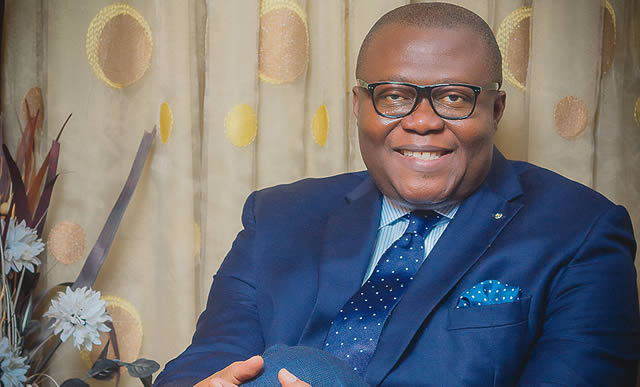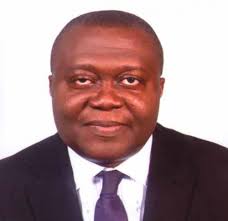By Ehi Braimah
The African Development Bank Group (AfDB) or Banque Africaine de Development was founded on September 10, 1964 shortly after the Organisation of African Unity (OAU) was established in 1963 by the 23 independent African nations at the time. AfDB is a multilateral finance development institution comprising three entities: The African Development Bank; The African Development Fund and The Nigeria Trust Fund. The primary function of the bank is making loans and equity investments for the socio-economic advancement of the RMC (regional member countries). Second, the bank also provides technical assistance for development projects and programmes, and third, AfDB promotes investment of public and private capital for development in the region.
AfDB shareholders are 54 African countries holding 60% shares and 26 non-African countries (non-regional member and donor countries) holding 40% shares. The non-regional member countries are primarily from Europe, America and Asia. Dr Akinwunmi Adesina was elected the 8th President of the bank on May 28, 2015 and he will be the first Nigerian to hold that position since the bank was founded 56 years ago. He succeeded Donald Kaberuka, a Rwandan economist who served two terms from 2005 to 2015. Adesina assumed duties on September 1, 2015 at the bank’s headquarters in Abidjan, Cote d’Ivoire.
Kaberuka’s predecessor, Omar Kabbaj of Morocco, spent two terms in office from 1995 – 2005. Babacar N’diaye from Senegal also served two terms as President of AfDB from 1985 – 1995. Why should it now be different for Adesina whose first term ends on August 31, 2020? In view of his excellent performance and track record, popular opinion is that he should continue in office and serve another term of five years. The AfDB President is being supported by African heads of government, leaders of thought and key stakeholders. In fact, he’s the sole candidate for the position which means he will be returned unopposed. Apparently, his comeback bid has ruffled some feathers.
With a membership of 80 countries, being President of AfDB is a high profile job and big deal. Adesina’s quest for a well-deserved second term has caused what is clearly a badly choreographed international conspiracy against him. When you want to hang a dog, what do you do? Give the dog a bad name. Sixteen unfounded and unproven allegations bordering on ethical and corporate governance related issues were hurled at Adesina by some misguided whistleblowers. They submitted their petition to the bank’s management on January 19 this year.
The bank’s ethics committee, a legal oversight body made up of representatives of shareholders, investigated the allegations of impropriety and exonerated the AfDB President of any wrong doing. The committee, headed by Takuji Yano, a Japanese national, met five times between February 27 and April 9, 2020 and produced an eight page report. The outcome of the report was that the petition “was not based on any objective or solid facts.” In other words, it was essentially a smear campaign and it was obvious fifth columnists were at work to damage the legacy of a great mind from Nigeria. In the opinion of the committee, the allegations were “baseless and unsubstantiated.” They should have added that the allegations were also “vexatious and wicked.”
What followed was the outright rejection of Adesina’s exoneration by the United States which clearly undermines the independence and integrity AfDB. In a letter to the board of the bank, US Treasury Secretary, Steven Mnuchin, dismissed the verdict of the ethics committee and called for an independent investigation of the allegations against Adesina. From all indications, the objective is to frustrate Adesina’s second term ambition as President of AfDB.
The unnecessary interference in the affairs of the bank is because the United States holds 6.5% shares, giving the US the status of the single largest shareholder by a non-African country. David Malpass, World Bank President and nominee of Donald Trump’s administration, added his voice to Mnuchin’s chorus to damage Adesina’s record by criticizing the bank as “lending too easily” to African countries thereby “compounding their debt problems.” The bank dismissed the allegation as untrue.
As a global financial policeman, the United States has a record of streamlining multilateral development banks (MDBs) to restrain access to credits by giving instructions to the World Bank. The letter from Mnuchin to the board of AfDB can be situated in this context – it looks like a “restraining order.” Nigeria is the largest shareholder of AfDB with 9%. What African leaders refused to do in the past was to show solidarity for AfDB and support the bank’s vision. They refused to see the future because of their cluelessness and therefore compromised the prosperity and wealth creation opportunities of the continent.
In his book, “Beckoned to serve” on page 372, former President Alhaji Shehu Shagari stated that one of the conditions Nigeria attached before providing facility to the AfDB was that under no circumstance should the bank’s equity be offered to non-Africans in the future. “It was therefore surprising when in 1981, the bank turned around to seek its “Board of Governors” approval of non-African equity participation,” Alhaji Shagari wrote in the book, expressing his frustration.
“It was also more surprising that all the member countries except Nigeria supported the proposal as the bank was hard pressed and no other African member country was willing to come to its aid financially,” Alhaji Shagari further observed, worried at the attitude of African leaders. He used Nigeria’s voting power to veto the proposition but it was disgraceful to note that many African heads of state pleaded with Alhaji Shagari to change his mind. The President of AfDB at the time, Willa Mung’Omba of Zambia (he was President of the bank from 1980 – 1985), even threatened to resign if Nigeria did not allow non-African countries to invest in the bank.
Bright Simons, a policy analyst and technologist from Ghana, explained why African leaders dropped the ball. In his story for The Africa Report magazine, Simons wrote: “Their lack of exposure to the world of multilateral development finance allowed non-African countries such as the United States to own shares and voting rights at AfDB.” After two years of holding its ground, Nigeria reluctantly agreed to the idea to prevent the total collapse of AfDB. As from 1982, non-African countries were allowed to own equities in the bank. See where the shortsightedness of African leaders has landed us today. It was another form of economic imperialism taking root and because there was lack of vision on the part of the leaders at the time, Africa sowed the seed of unwarranted domination, subjugation and exploitation in a bank that should have been wholly owned by African countries. Can we really in truth blame the Americans for their current stance?
Information available at AfDB website explained why foreign equity participation was allowed: “Initially, only independent African countries could become members of the Bank. However, due to growing demand for investments from African countries and because of the Bank’s limited financial resources, membership was opened to non-regional countries. The admission of non-regional members in 1982 gave the AfDB additional means that enabled it to contribute to the economic and social development of its RMCs through low-interest loans.
“With a larger membership, the institution was endowed with greater expertise, the credibility of its partners and access to markets in its non-regional member countries. The AfDB enjoys triple A ratings from all the main international rating agencies. However, the AfDB maintains an African character derived from its geography and ownership structure. It exclusively covers Africa. It is also headquartered in Africa, and its president is always African.”
In today’s globalized world, attracting foreign investors, especially from the US, is not a bad idea but their control and dominance must be minimised – the strategy is to “think global but act local”. Take the case of Asian Development Bank (ADB), another multilateral development bank. Although ADB attracted foreign investors including the US, the Japanese are clearly in charge. “Every single one of the bank’s president since inception has been Japanese despite the fact that Japanese shareholding in ADB is at par with that of the United States (compared to the situation in AfDB where Nigeria has nearly 50% more in shareholding than the US),” Simons explained, while comparing AfDB to ADB.
The commonsensical question to ask is: Why do the Americans want Adesina out of the bank? Why is the US Treasury Department bullying the board of AfDB? Simons hinted that it may just be another case of western imperialism through the back door of hostage finance. When Dr Reuben Abati, popular columnist, editorialist and Arise TV presenter, made the argument recently in his column that Adesina is the best man for the job, he hit the nail on the head; it wasn’t a PR stunt. Abati was damn right.
For those who know Adesina, his credentials are quite intimidating. Right from his days at the Obafemi Awolowo University (formerly University of Ife) in Ile-Ife, Osun State; Adesina has been an award winner and distinguished scholar. He graduated from Obafemi Awolowo University with Bachelors in Agricultural Economics with First Class Honours in 1981, where he was the first student to be awarded this distinction by the university.
Adesina is creator and master curator of innovative ideas. He is also blessed with excellent management and leadership skills. Wherever he goes, Adesina seeks to make a difference as a goodwill ambassador and agent of change; he’s result-oriented and has the uncanny ability of breaking records including his own records. He is like a moving train and he also shines like a million stars. As Nigeria’s former Minister of Agriculture and Rural Development, Adesina launched massive innovation initiatives that helped to boost the agric value chain in the country.
To the best of my knowledge, Adesina and his colleagues have been giving form and character to the mission of the bank: to promote sustainable economic growth and reduce poverty in Africa. A key area of focus is agriculture for AfDB. Adesina is passionate about creating a new food security order in Africa. I hope this ambitious agenda is not causing any anxiety in Washington.
Eleanor Roosevelt, longest serving First Lady of the United States, said we should do what we feel in our hearts is right because we will be criticized any way. “Leadership”, says American author Seth Godin, “is the art of giving people a platform for spreading ideas that work.” Adesina is a thinker, strategist and man of ideas. He believes in spreading ideas that work and leading his team from the front to win. We can forgive him if he wears his charismatic nature on his body like a fragrance, but the welcoming smell of the fragrance is unmistakable with his trademark bow tie and toothy smile. The AfDB President says agriculture is not a way of life but a business and wealth creating sector. In an interesting interview that has now gone viral in view of his current travails, Adesina told the TV interviewer (information on the television network was not immediately available as at the time of writing and I’m therefore unable to cite it) that Africa must leverage its advantages in agriculture.
“As at today, Africa spends $35 billion a year importing food that it should be producing. If we do nothing about that, by 2025, Africa will be spending $110 billion every year importing food. So things have got to change. The first thing that has to change is that we must take agriculture as a business that can create wealth and revive our rural communities. The second thing that should change is that for all the things that Africa produces, be it cotton, maize, rice, cassava, tea, cocoa; whatever it is, Africa needs to absolutely add value to everything.”
Adesina further revealed in the interview that it makes no sense for Africa which accounts for 75% of the global production of cocoa to receive only 2% of the $100 billion market for chocolates. “The price of cocoa will fall as it just happened and Cote d’Ivoire is losing $1 billion as a result of that price crash but the price of chocolate never goes down; the price of cotton will fall but the price of textiles and apparels will never go down; the price of coffee bean will fall but the price of brewed coffee that people are making money from and smiling all the way to the bank will never go down.
“So we have to make sure the agriculture value chain allows Africa to add value to everything it produces. That is why within the African Development Bank, we have taken this matter seriously. We intend to invest $24 billion of our own money into agriculture over the next 10 years so that Africa can be totally food self-sufficient. Secondly, Africa can participate in global food value chains,” Adesina explained, speaking like a visionary leader that he is.
Another area of strategic focus of the bank is what Adesina called “Work Plan for the Youths of Africa.” He said the youths are Africa’s best asset because “they’re young, dynamic and full of life.” What any nation does with its youths will determine its progress and, from the perspective of high youth unemployment in Africa, AfDB is committed to making massive investment in the skills and entrepreneurship potentials of young people. According to Adesina, young people don’t need handouts; instead, they need investment in their ideas, business proposals and their future. AfDB’s “Youth Entrepreneurship Investment Bank”, the AfDB President explained, will unlock the potentials of young but innovative entrepreneurs of Africa.
Thankfully, President Muhammadu Buhari is leading a global effort to ensure that Adesina secures his second term bid. Fifteen African leaders not only endorsed Adesina for a second term as President of AfDB, they have also urged the board of governors to ignore calls for an independent probe. Former Presidents Olusegun Obasanjo and Goodluck Jonathan as well as Muhammadu Lamido Sanusi, former emir of Kano, have spoken in favour of Adesina to serve for another five years. “This is not about defending a friend or a Nigerian,” said Sanusi, “it is about standing up for what is right.”
Zainab Ahmed, Minister of Finance, Budget and National Planning, in a strongly worded letter dated May 28, 2020 addressed to Hon Niale Kaba, chairperson of the board of governors of AfDB, stated that the call for an independent investigation of Adesina was outside the laid down rules, procedures and governing rules of the bank and its articles as it relates to the code of conduct on ethics for the President.
During his visit to President Muhammadu Buhari at Aso Villa recently, Adesina explained that he was innocent of all the allegations against him. In his 250 page defence, he said not even one line was queried. In his narration after the visit, Presidential spokesman Femi Adesina said President Buhari has fully endorsed Adesina for a second term as AfDB President. Unfortunately, it appears the AfDB board has “technically” succumbed to the wishes of the United States and Adesina’s traducers.
In a communiqué issued over the current brouhaha in the bank, Hon Kaba said on the one hand, “the board agrees with the investigation carried out by the ethics committee into the whistle blower allegations leveled against Adesina”. But on the other hand, “the board of governors has agreed to authorise an independent review of the ethics committee’s report in the interest of due process and the need to carry every governor along in resolving the matter”. What does this mean? No matter how you try to understand the context, the communiqué appears very contradictory – it is like giving something with the right hand and taking it back with the left hand — but I believe in their own wisdom, the board of governors knows the right thing and they will do it. There’s no need to pull wool over our eyes. Even if they do, we will shine our eyes and still see clearly.
Braimah is a public relations and marketing strategist based in L AfDB is a multilateral finance development institution comprising three entities: The African Development Bank; The African Development Fund and The Nigeria Trust Fund. The primary function of the bank is making loans and equity investments for the socio-economic advancement of the RMC (regional member countries). Second, the bank also provides technical assistance for development projects and programmes, and third, AfDB promotes investment of public and private capital for development in the region.
AfDB shareholders are 54 African countries holding 60% shares and 26 non-African countries (non-regional member and donor countries) holding 40% shares. The non-regional member countries are primarily from Europe, America and Asia. Dr Akinwunmi Adesina was elected the 8th President of the bank on May 28, 2015 and he will be the first Nigerian to hold that position since the bank was founded 56 years ago. He succeeded Donald Kaberuka, a Rwandan economist who served two terms from 2005 to 2015. Adesina assumed duties on September 1, 2015 at the bank’s headquarters in Abidjan, Cote d’Ivoire.
Kaberuka’s predecessor, Omar Kabbaj of Morocco, spent two terms in office from 1995 – 2005. Babacar N’diaye from Senegal also served two terms as President of AfDB from 1985 – 1995. Why should it now be different for Adesina whose first term ends on August 31, 2020? In view of his excellent performance and track record, popular opinion is that he should continue in office and serve another term of five years. The AfDB President is being supported by African heads of government, leaders of thought and key stakeholders. In fact, he’s the sole candidate for the position which means he will be returned unopposed. Apparently, his comeback bid has ruffled some feathers.
With a membership of 80 countries, being President of AfDB is a high profile job and big deal. Adesina’s quest for a well-deserved second term has caused what is clearly a badly choreographed international conspiracy against him. When you want to hang a dog, what do you do? Give the dog a bad name. Sixteen unfounded and unproven allegations bordering on ethical and corporate governance related issues were hurled at Adesina by some misguided whistleblowers. They submitted their petition to the bank’s management on January 19 this year.
The bank’s ethics committee, a legal oversight body made up of representatives of shareholders, investigated the allegations of impropriety and exonerated the AfDB President of any wrong doing. The committee, headed by Takuji Yano, a Japanese national, met five times between February 27 and April 9, 2020 and produced an eight page report. The outcome of the report was that the petition “was not based on any objective or solid facts.” In other words, it was essentially a smear campaign and it was obvious fifth columnists were at work to damage the legacy of a great mind from Nigeria. In the opinion of the committee, the allegations were “baseless and unsubstantiated.” They should have added that the allegations were also “vexatious and wicked.”
What followed was the outright rejection of Adesina’s exoneration by the United States which clearly undermines the independence and integrity AfDB. In a letter to the board of the bank, US Treasury Secretary, Steven Mnuchin, dismissed the verdict of the ethics committee and called for an independent investigation of the allegations against Adesina. From all indications, the objective is to frustrate Adesina’s second term ambition as President of AfDB.
The unnecessary interference in the affairs of the bank is because the United States holds 6.5% shares, giving the US the status of the single largest shareholder by a non-African country. David Malpass, World Bank President and nominee of Donald Trump’s administration, added his voice to Mnuchin’s chorus to damage Adesina’s record by criticizing the bank as “lending too easily” to African countries thereby “compounding their debt problems.” The bank dismissed the allegation as untrue.
As a global financial policeman, the United States has a record of streamlining multilateral development banks (MDBs) to restrain access to credits by giving instructions to the World Bank. The letter from Mnuchin to the board of AfDB can be situated in this context – it looks like a “restraining order.” Nigeria is the largest shareholder of AfDB with 9%. What African leaders refused to do in the past was to show solidarity for AfDB and support the bank’s vision. They refused to see the future because of their cluelessness and therefore compromised the prosperity and wealth creation opportunities of the continent.
In his book, “Beckoned to serve” on page 372, former President Alhaji Shehu Shagari stated that one of the conditions Nigeria attached before providing facility to the AfDB was that under no circumstance should the bank’s equity be offered to non-Africans in the future. “It was therefore surprising when in 1981, the bank turned around to seek its “Board of Governors” approval of non-African equity participation,” Alhaji Shagari wrote in the book, expressing his frustration.
“It was also more surprising that all the member countries except Nigeria supported the proposal as the bank was hard pressed and no other African member country was willing to come to its aid financially,” Alhaji Shagari further observed, worried at the attitude of African leaders. He used Nigeria’s voting power to veto the proposition but it was disgraceful to note that many African heads of state pleaded with Alhaji Shagari to change his mind. The President of AfDB at the time, Willa Mung’Omba of Zambia (he was President of the bank from 1980 – 1985), even threatened to resign if Nigeria did not allow non-African countries to invest in the bank.
Bright Simons, a policy analyst and technologist from Ghana, explained why African leaders dropped the ball. In his story for The Africa Report magazine, Simons wrote: “Their lack of exposure to the world of multilateral development finance allowed non-African countries such as the United States to own shares and voting rights at AfDB.” After two years of holding its ground, Nigeria reluctantly agreed to the idea to prevent the total collapse of AfDB. As from 1982, non-African countries were allowed to own equities in the bank. See where the shortsightedness of African leaders has landed us today. It was another form of economic imperialism taking root and because there was lack of vision on the part of the leaders at the time, Africa sowed the seed of unwarranted domination, subjugation and exploitation in a bank that should have been wholly owned by African countries. Can we really in truth blame the Americans for their current stance?
Information available at AfDB website explained why foreign equity participation was allowed: “Initially, only independent African countries could become members of the Bank. However, due to growing demand for investments from African countries and because of the Bank’s limited financial resources, membership was opened to non-regional countries. The admission of non-regional members in 1982 gave the AfDB additional means that enabled it to contribute to the economic and social development of its RMCs through low-interest loans.
“With a larger membership, the institution was endowed with greater expertise, the credibility of its partners and access to markets in its non-regional member countries. The AfDB enjoys triple A ratings from all the main international rating agencies. However, the AfDB maintains an African character derived from its geography and ownership structure. It exclusively covers Africa. It is also headquartered in Africa, and its president is always African.”
In today’s globalized world, attracting foreign investors, especially from the US, is not a bad idea but their control and dominance must be minimised – the strategy is to “think global but act local”. Take the case of Asian Development Bank (ADB), another multilateral development bank. Although ADB attracted foreign investors including the US, the Japanese are clearly in charge. “Every single one of the bank’s president since inception has been Japanese despite the fact that Japanese shareholding in ADB is at par with that of the United States (compared to the situation in AfDB where Nigeria has nearly 50% more in shareholding than the US),” Simons explained, while comparing AfDB to ADB.
The commonsensical question to ask is: Why do the Americans want Adesina out of the bank? Why is the US Treasury Department bullying the board of AfDB? Simons hinted that it may just be another case of western imperialism through the back door of hostage finance. When Dr Reuben Abati, popular columnist, editorialist and Arise TV presenter, made the argument recently in his column that Adesina is the best man for the job, he hit the nail on the head; it wasn’t a PR stunt. Abati was damn right.
For those who know Adesina, his credentials are quite intimidating. Right from his days at the Obafemi Awolowo University (formerly University of Ife) in Ile-Ife, Osun State; Adesina has been an award winner and distinguished scholar. He graduated from Obafemi Awolowo University with Bachelors in Agricultural Economics with First Class Honours in 1981, where he was the first student to be awarded this distinction by the university.
Adesina is creator and master curator of innovative ideas. He is also blessed with excellent management and leadership skills. Wherever he goes, Adesina seeks to make a difference as a goodwill ambassador and agent of change; he’s result-oriented and has the uncanny ability of breaking records including his own records. He is like a moving train and he also shines like a million stars. As Nigeria’s former Minister of Agriculture and Rural Development, Adesina launched massive innovation initiatives that helped to boost the agric value chain in the country.
To the best of my knowledge, Adesina and his colleagues have been giving form and character to the mission of the bank: to promote sustainable economic growth and reduce poverty in Africa. A key area of focus is agriculture for AfDB. Adesina is passionate about creating a new food security order in Africa. I hope this ambitious agenda is not causing any anxiety in Washington.
Eleanor Roosevelt, longest serving First Lady of the United States, said we should do what we feel in our hearts is right because we will be criticized any way. “Leadership”, says American author Seth Godin, “is the art of giving people a platform for spreading ideas that work.” Adesina is a thinker, strategist and man of ideas. He believes in spreading ideas that work and leading his team from the front to win. We can forgive him if he wears his charismatic nature on his body like a fragrance, but the welcoming smell of the fragrance is unmistakable with his trademark bow tie and toothy smile. The AfDB President says agriculture is not a way of life but a business and wealth creating sector. In an interesting interview that has now gone viral in view of his current travails, Adesina told the TV interviewer (information on the television network was not immediately available as at the time of writing and I’m therefore unable to cite it) that Africa must leverage its advantages in agriculture.
“As at today, Africa spends $35 billion a year importing food that it should be producing. If we do nothing about that, by 2025, Africa will be spending $110 billion every year importing food. So things have got to change. The first thing that has to change is that we must take agriculture as a business that can create wealth and revive our rural communities. The second thing that should change is that for all the things that Africa produces, be it cotton, maize, rice, cassava, tea, cocoa; whatever it is, Africa needs to absolutely add value to everything.”
Adesina further revealed in the interview that it makes no sense for Africa which accounts for 75% of the global production of cocoa to receive only 2% of the $100 billion market for chocolates. “The price of cocoa will fall as it just happened and Cote d’Ivoire is losing $1 billion as a result of that price crash but the price of chocolate never goes down; the price of cotton will fall but the price of textiles and apparels will never go down; the price of coffee bean will fall but the price of brewed coffee that people are making money from and smiling all the way to the bank will never go down.
“So we have to make sure the agriculture value chain allows Africa to add value to everything it produces. That is why within the African Development Bank, we have taken this matter seriously. We intend to invest $24 billion of our own money into agriculture over the next 10 years so that Africa can be totally food self-sufficient. Secondly, Africa can participate in global food value chains,” Adesina explained, speaking like a visionary leader that he is.
Another area of strategic focus of the bank is what Adesina called “Work Plan for the Youths of Africa.” He said the youths are Africa’s best asset because “they’re young, dynamic and full of life.” What any nation does with its youths will determine its progress and, from the perspective of high youth unemployment in Africa, AfDB is committed to making massive investment in the skills and entrepreneurship potentials of young people. According to Adesina, young people don’t need handouts; instead, they need investment in their ideas, business proposals and their future. AfDB’s “Youth Entrepreneurship Investment Bank”, the AfDB President explained, will unlock the potentials of young but innovative entrepreneurs of Africa.
Thankfully, President Muhammadu Buhari is leading a global effort to ensure that Adesina secures his second term bid. Fifteen African leaders not only endorsed Adesina for a second term as President of AfDB, they have also urged the board of governors to ignore calls for an independent probe. Former Presidents Olusegun Obasanjo and Goodluck Jonathan as well as Muhammadu Lamido Sanusi, former emir of Kano, have spoken in favour of Adesina to serve for another five years. “This is not about defending a friend or a Nigerian,” said Sanusi, “it is about standing up for what is right.”
Zainab Ahmed, Minister of Finance, Budget and National Planning, in a strongly worded letter dated May 28, 2020 addressed to Hon Niale Kaba, chairperson of the board of governors of AfDB, stated that the call for an independent investigation of Adesina was outside the laid down rules, procedures and governing rules of the bank and its articles as it relates to the code of conduct on ethics for the President.
During his visit to President Muhammadu Buhari at Aso Villa recently, Adesina explained that he was innocent of all the allegations against him. In his 250 page defence, he said not even one line was queried. In his narration after the visit, Presidential spokesman Femi Adesina said President Buhari has fully endorsed Adesina for a second term as AfDB President. Unfortunately, it appears the AfDB board has “technically” succumbed to the wishes of the United States and Adesina’s traducers.
In a communiqué issued over the current brouhaha in the bank, Hon Kaba said on the one hand, “the board agrees with the investigation carried out by the ethics committee into the whistle blower allegations leveled against Adesina”. But on the other hand, “the board of governors has agreed to authorise an independent review of the ethics committee’s report in the interest of due process and the need to carry every governor along in resolving the matter”. What does this mean? No matter how you try to understand the context, the communiqué appears very contradictory – it is like giving something with the right hand and taking it back with the left hand — but I believe in their own wisdom, the board of governors knows the right thing and they will do it. There’s no need to pull wool over our eyes. Even if they do, we will shine our eyes and still see clearly.
Braimah is a public relations and marketing strategist based in Lagos

